English is the most spoken language in the world with a mind-bending total of 1.348 billion speakers. So no language like it has ever dominated the world. The influence of English can be easily traced in the way its vocabulary has infiltrated so many other languages.
Researchers at the IULM University in Milan have noticed that, in the past 50 years, Italian syntax has shifted towards patterns that mimic English models, and that’s just one example. And thanks to the global influence of social media, younger generations from around the world are all speaking fluent English, mimicking insta-famous natives from across the sea like it's no big deal.
So it’s only fair to expect something from this language, right? For example, that it makes sense, is user-friendly and somewhat intuitive. And it kinda is, or is it? Well, you gotta draw your own conclusions after scrolling through some of the weirdest, most frustrating and pretty incredible English language quirks we collected below. From the cursed English pronunciation to the sentences that have 7 or more different meanings depending on the stressed word, this is a crazy class you wouldn’t like to have an exam in.
This post may include affiliate links.
If the plural of goose is geese, should the plural of moose be meese?
English, the universal language of this world, is somewhat of a tough nut to crack for anyone who just got on board. The reason for this is the fact that this language is full of unique quirks and incredible oddities that, although challenging at first, give it character. For example, think of the sentence “I haven’t slept for ten days, because that would be too long” by Mitch Hedberg, who created this paraprosdokian, a phrase that figuratively defeats your expectation. The listener or reader will have to reframe or reinterpret the earlier clause. Coming from the Greek ‘para’ meaning ‘against’ and ‘prosdokia’ meaning ‘expectation,’ a paraprosdokian leaves the reader somewhat baffled by the conclusion of the sentence.
I didn't kill your dog. I DIDN'T kill your dog. I didn't KILL your dog. I didn't kill YOUR dog. I didn't kill your DOG.
Another confusing thing in the English language may be syntactic ambiguity. Here is an example: “I’m happy I’m a tennis player, and so is Albert.” It can mean four things: “I am happy Albert and I are both tennis players,” “I’m glad I'm a tennis player, and Albert is also a tennis player,” “Albert and I are both glad I’m a tennis player,” or “I am glad I’m a tennis player and Albert is also glad to be a tennis player.”
Both are rarely heard outside America except from people who think Americanisms are trendy.
Geronyms, brand names used to mean an everyday item, are also common in the English language. These terms have seeped into the general psyche and are used more often than their technical counterparts. We almost always ‘Google’ something instead of doing an ‘online search.’ In the US especially, for example, people often refer to cotton swabs as ‘Q-Tips’ after their brand name. Increasingly more popular nowadays is the process of ‘Photoshopping’ an image, after Adobe’s software of the same name.
Auto-antonyms are words with multiple meanings, two of which are antonyms of one another. Some are used in everyday language without our realizing it: the word ‘off’ is guilty of this. We can turn something off, meaning it will cease to be on. Conversely, the alarm can go off, meaning it has—rather bizarrely—just turned on. In more technical terms, a ‘strike’ can, in baseball terminology, mean a hit or a miss.
Easy. As an English/American native speaker go for german words like "Streichholzschachtel".
Also, if a person from Poland is a Pole, then shouldn't a person from Holland be a Hole?
The "if" throws me. "You all would have" all contract in previously accepted ways. Same with "I would have". I have never seen "if" contracted into anything before. It would have been recognisable as Y'all'd've if I'd've. (Because I'd also like to point out that the apostrophe around I'd was in the wrong place)
Kowtow is technically not an English word, its an anglicized version of a Chinese words.
Trying to teach my daughter to read and write is hard. She has to sound out her words when reading. But the sounds the words make are not the same as spelling them on paper. 🙃
Arkansas and Kansas didnt come from English. Arkansas is a French corruption of the pronunciation of a Quapaw word meaning "The Down River People" Kansas is named after the Kansa people. Almost all of the states names came from native words, or French or Spanish corruptions of those native words.
"I" before "E" only applies to 45 words in the entirety of the English language . . . So why was this drilled into my head when I was a kid?? Edit: feel I need to clarify. I realize there are more words within this rule, but in my elementary school I had a teacher that was adamant about it only applying to 45 words . . . Yeah, that lady swore up and down she had an English major.
You understand that we Finns are just now laugingh on these "difficulties" :D
yeah but dude ... Finnish is super odd. I raise you: lentokonesuihkuturbiinimoottoriapumekaanikkoaliupseerioppilas
Load More Replies...It isn't, it just has many quirks that take some time getting used to.
Load More Replies..."I" before "E" only applies to 45 words in the entirety of the English language . . . So why was this drilled into my head when I was a kid?? Edit: feel I need to clarify. I realize there are more words within this rule, but in my elementary school I had a teacher that was adamant about it only applying to 45 words . . . Yeah, that lady swore up and down she had an English major.
You understand that we Finns are just now laugingh on these "difficulties" :D
yeah but dude ... Finnish is super odd. I raise you: lentokonesuihkuturbiinimoottoriapumekaanikkoaliupseerioppilas
Load More Replies...It isn't, it just has many quirks that take some time getting used to.
Load More Replies...
 Dark Mode
Dark Mode 

 No fees, cancel anytime
No fees, cancel anytime 

















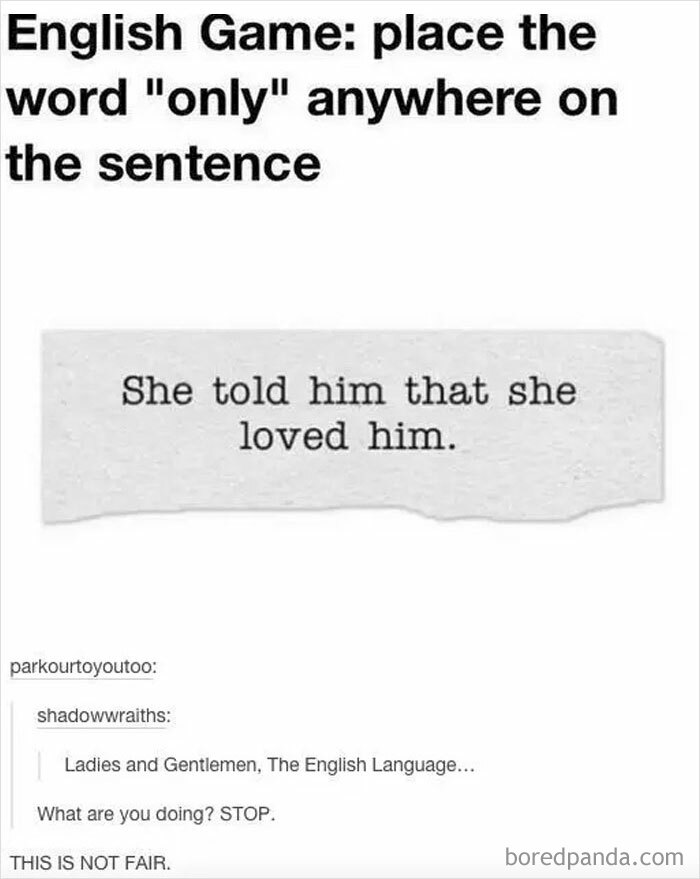



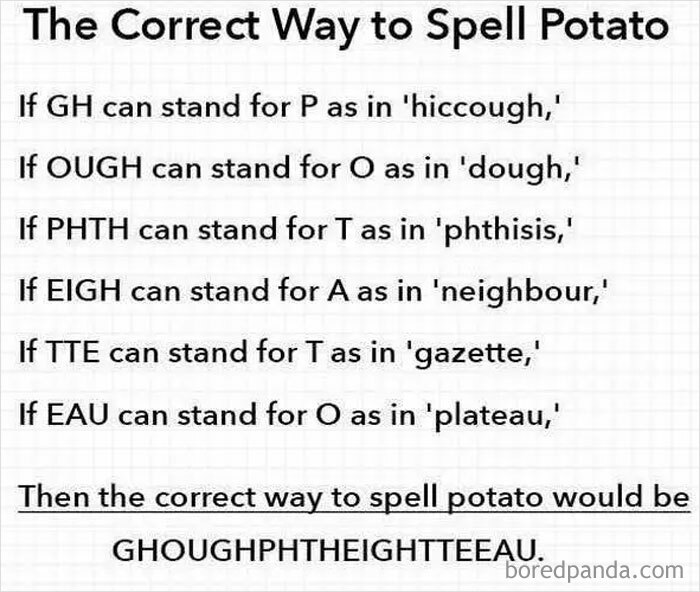
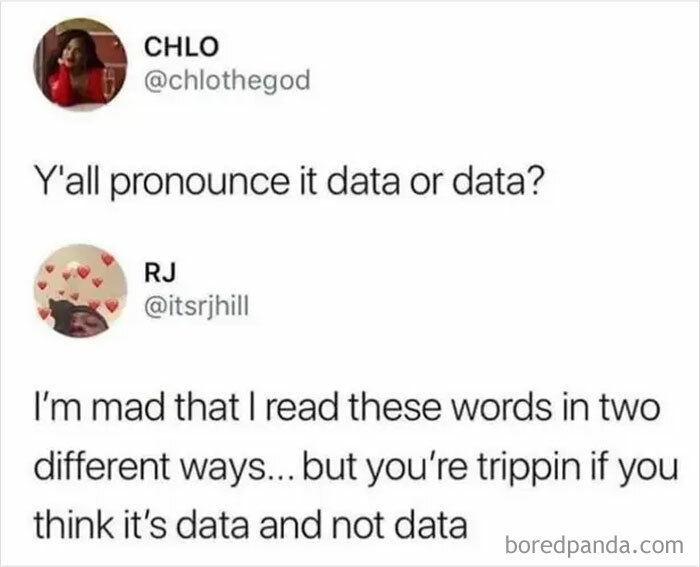

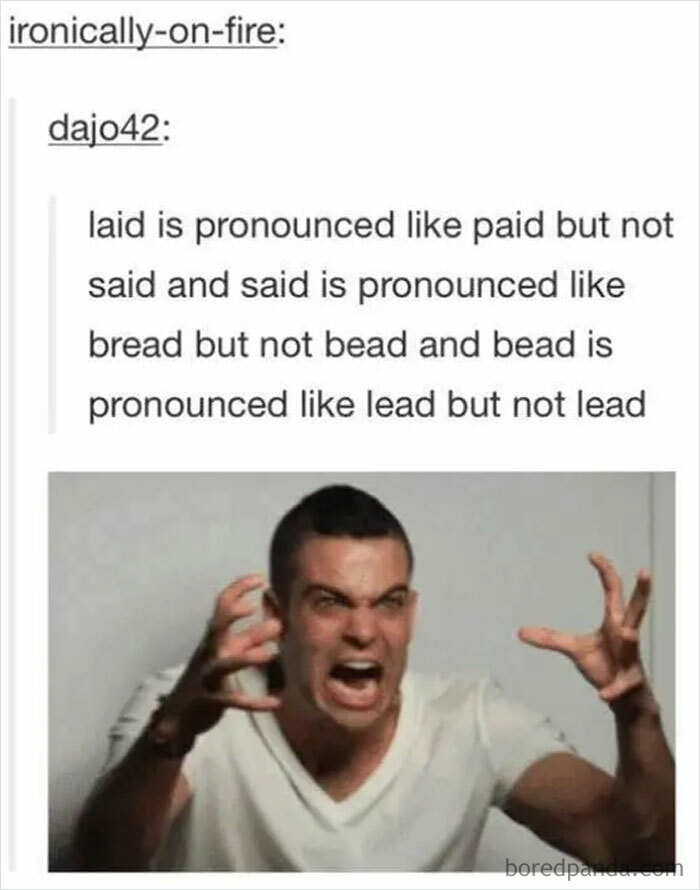

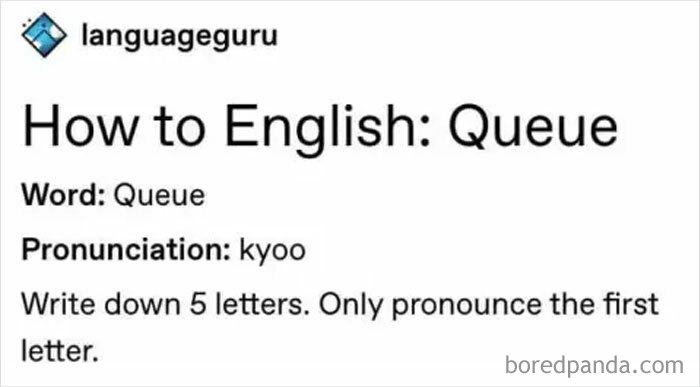

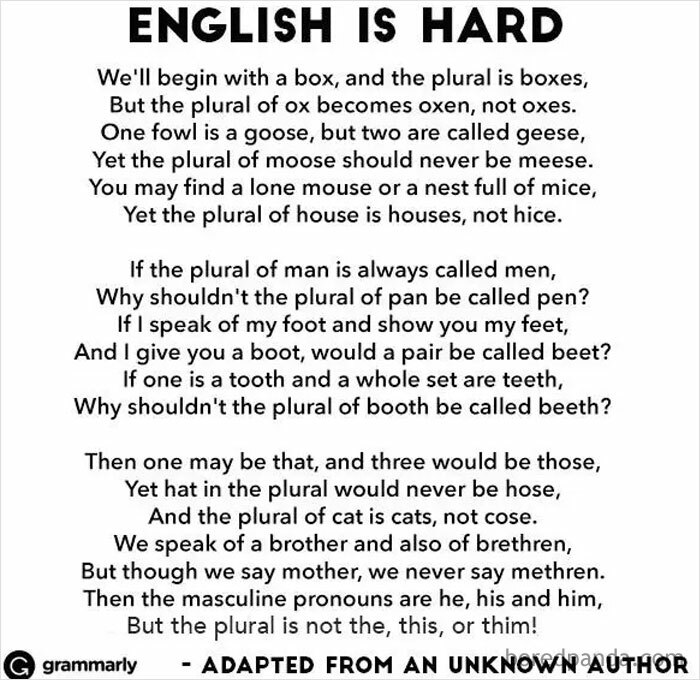








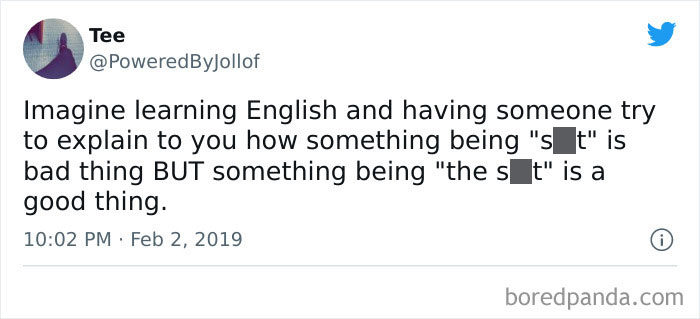

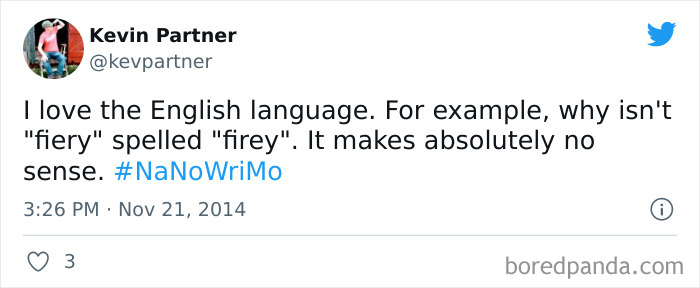




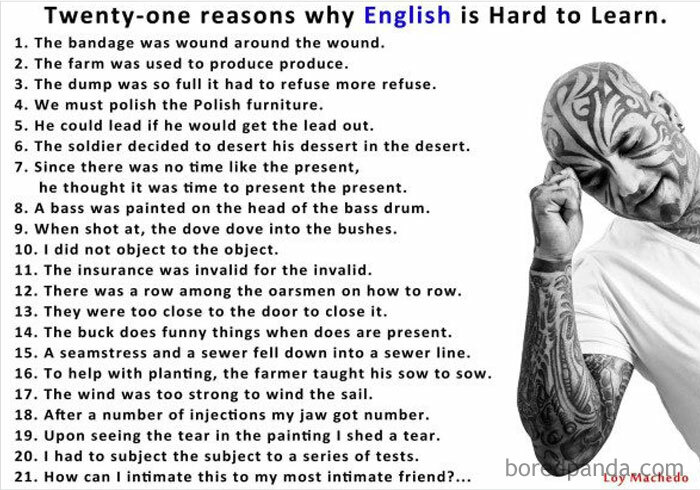

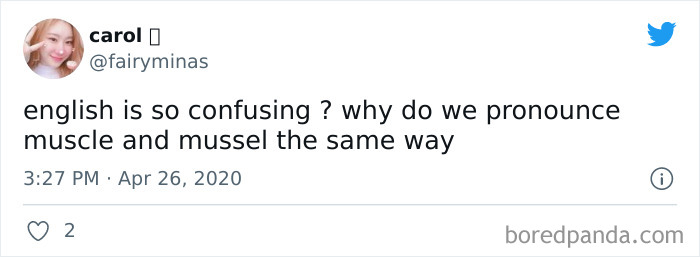
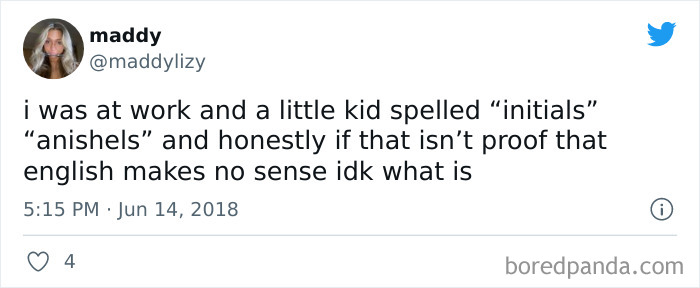
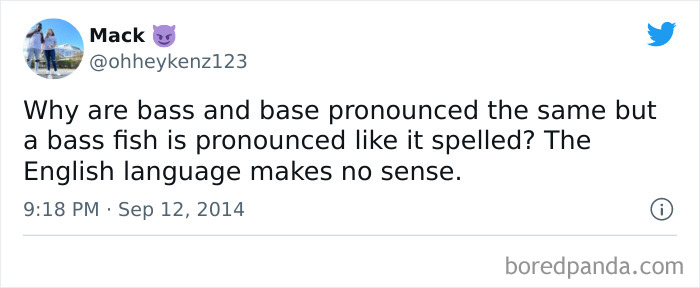

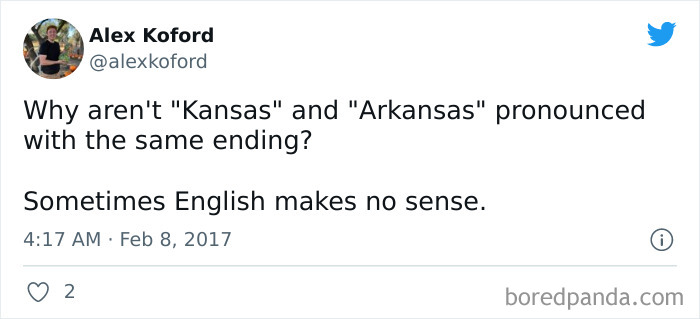






















![“AITA For Losing [It] And Screaming At GF To Get Out Of My House After What Her Stepbrother Did?”](https://www.boredpanda.com/blog/wp-content/uploads/2025/01/man-screams-gf-over-creepy-stepbrother-fb18-png__700.jpg)






